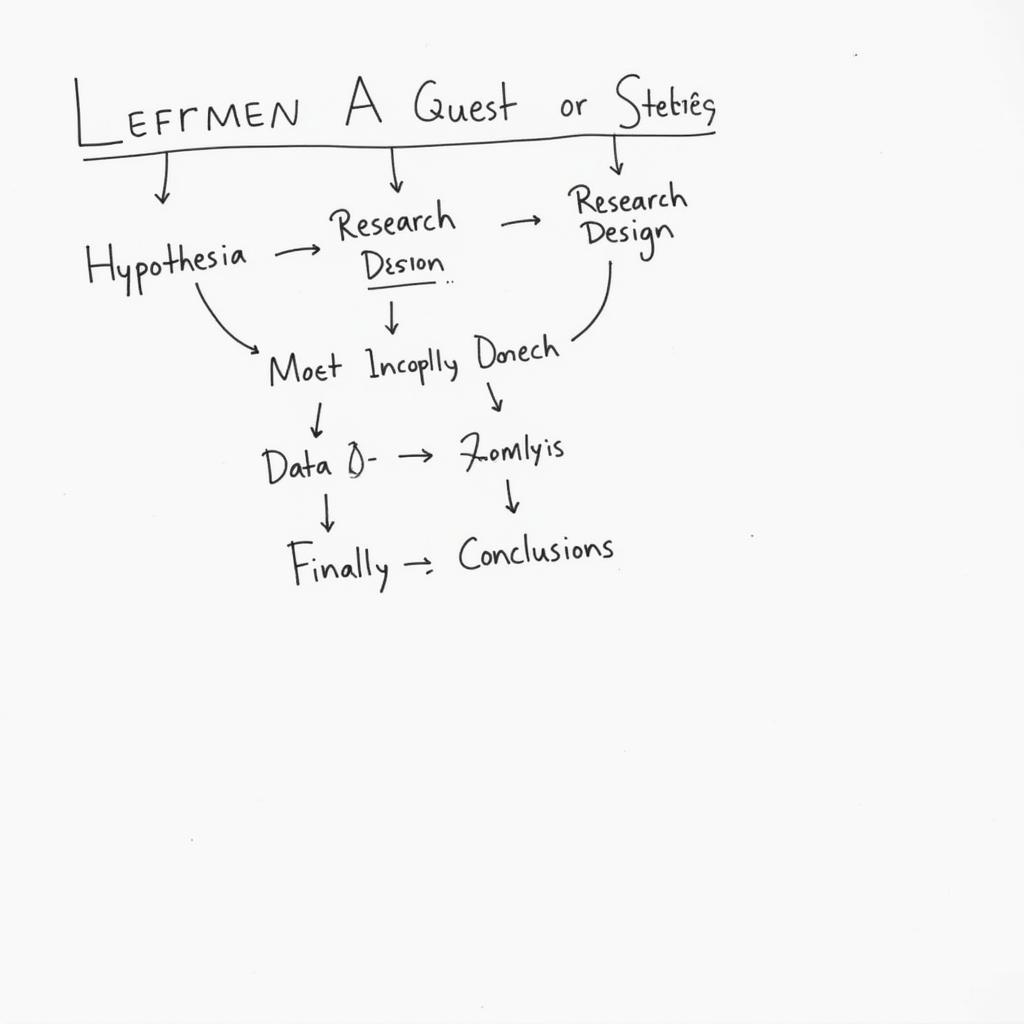The human mind is a vast and complex landscape, full of mysteries and wonders. In AP Psychology, we delve into these mysteries using a powerful toolkit: research methods. These methods, the lifeblood of psychological exploration, allow us to move beyond assumptions and anecdotal evidence to understand the hows and whys of human behavior.
The Scientific Method: A Foundation for Understanding
At the heart of all psychological research lies the scientific method, a systematic approach to acquiring knowledge that emphasizes objectivity and empirical evidence. This method provides a structured framework for researchers, ensuring that findings are reliable, valid, and replicable.
- Formulating a Research Question: Every scientific journey begins with a question. Researchers identify a specific area of interest and craft a clear, concise question that guides their investigation.
- Developing a Hypothesis: Based on existing theories and prior research, researchers formulate a testable prediction, known as a hypothesis, about the relationship between variables.
- Designing the Study: Researchers carefully select the most appropriate research method, such as an experiment or a survey, and determine the participants, materials, and procedures.
- Collecting Data: Researchers systematically gather information through observations, surveys, experiments, or other data collection techniques.
- Analyzing Results: Statistical analyses help researchers determine if the data supports or refutes the hypothesis.
- Drawing Conclusions: Based on the analysis, researchers draw conclusions about the relationship between variables and the implications for understanding human behavior.
 The Scientific Method in Psychology
The Scientific Method in Psychology
Exploring Research Methods in AP Psychology
AP Psychology explores a diverse range of research methods, each with its strengths and limitations. Understanding these methods is crucial for evaluating psychological research and designing your own studies.
Descriptive Research: Painting a Picture of Behavior
Descriptive research aims to observe and describe behavior without manipulating any variables. It provides a snapshot of thoughts, feelings, and behaviors.
- Case Studies: In-depth investigations of individuals or small groups, often used to explore rare phenomena or generate hypotheses for further research.
- Naturalistic Observation: Observing and recording behavior in naturally occurring situations without interfering with the subjects.
- Surveys: Questionnaires or interviews used to gather information about attitudes, beliefs, and behaviors from a large sample of people.
Correlational Research: Investigating Relationships
Correlational research examines the relationships between variables to determine if they are related and, if so, how strongly. It’s important to note that correlation does not equal causation.
- Positive Correlation: As one variable increases, the other variable also tends to increase.
- Negative Correlation: As one variable increases, the other variable tends to decrease.
- Correlation Coefficient: A statistical measure (-1 to +1) indicating the strength and direction of the relationship between variables.
Experimental Research: Unveiling Cause and Effect
Experimental research is the gold standard for determining cause-and-effect relationships. By manipulating an independent variable and measuring its effect on a dependent variable, while controlling for extraneous variables, researchers can draw conclusions about causality.
- Independent Variable (IV): The variable manipulated by the researcher.
- Dependent Variable (DV): The variable measured to see if it’s affected by the IV.
- Control Group: The group that does not receive the experimental treatment, providing a baseline for comparison.
- Experimental Group: The group that receives the experimental treatment.
Ethical Considerations: Protecting Participants
Ethical considerations are paramount in psychological research. Researchers have a responsibility to protect the well-being and dignity of their participants. Key ethical guidelines include:
- Informed Consent: Participants must be fully informed about the study’s purpose, procedures, risks, and benefits before consenting to participate.
- Confidentiality: Researchers must protect the privacy of participants and keep their data confidential.
- Debriefing: After the study, researchers must explain the true nature of the research, especially if deception was used, and address any questions or concerns participants may have.
Research Methods AP Psychology: A Gateway to Understanding
Mastering research methods in AP Psychology empowers you to critically evaluate psychological claims, understand the complexities of human behavior, and contribute to the advancement of scientific knowledge. As you delve deeper into the fascinating world of psychology, these methods will serve as your compass, guiding you toward a richer, more nuanced understanding of the human mind.
FAQs about Research Methods in AP Psychology
What are the most common research methods used in AP Psychology?
The most common research methods in AP Psychology include experiments, correlational studies, surveys, naturalistic observations, and case studies.
What are the ethical considerations in psychological research?
Ethical considerations include informed consent, confidentiality, debriefing, and minimizing harm to participants.
Why is it important to understand research methods?
Understanding research methods allows you to critically evaluate psychological claims, understand the strengths and limitations of different research designs, and design your own research studies.